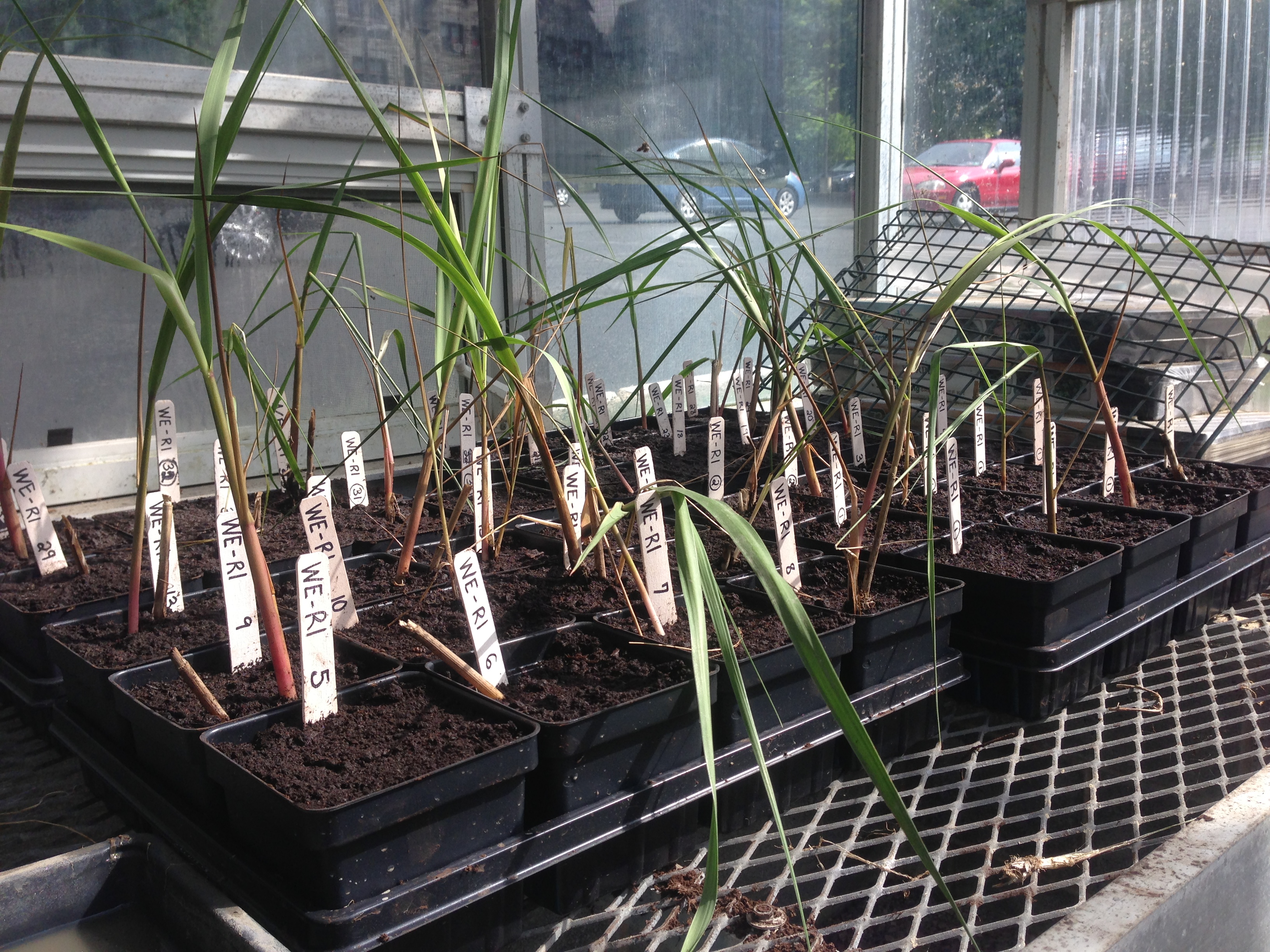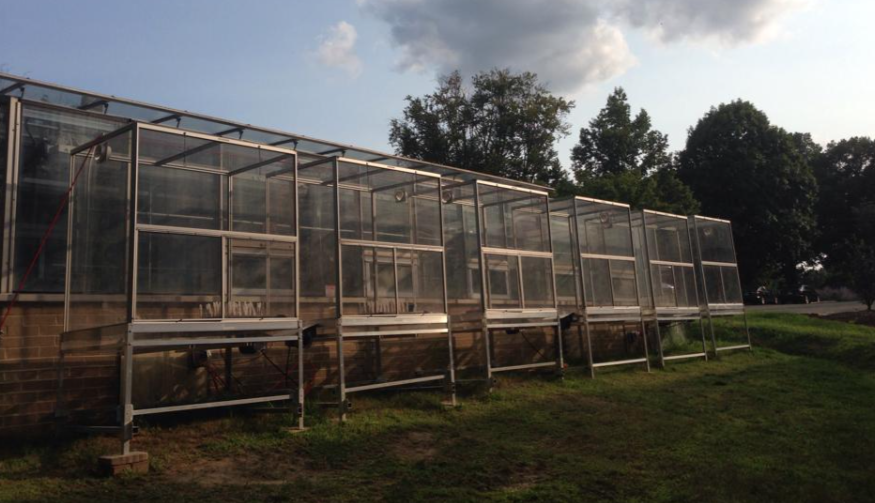Bryn Mawr College / Summer Science Research
Genotype-dependent Reactions to Climate Change
Investigated the effects of genotype on responses of invasive Phragmites australis under elevated levels of CO2 and nitrogen
A Eurasian strain of the common reed (Phragmites australis) has aggressively invaded tidal marshes on the North American Atlantic Coast, threatening the interspecific diversity, and therefore stability, of wetland ecosystems. While invasive P. australis is known to outperform the native strain due to greater phenotypic plasticity, it is unknown if certain invasive genotypes will respond more effectively to environmental conditions present in 100 years.
Four genotypes of Phragmites australis for 10 weeks. Three chambers were kept at ambient levels of atmospheric CO2 (approx. 400 ppm), and three were kept at elevated levels expected to occur by the end of the next century (approx. 700 ppm). Three replicates each of the genotypes were placed under the four conditions:
- Ambient
- Elevated CO2 (+300 ppm)
- Elevated Nitrogen (25g N/m2 per year)
- Elevated CO2 and Nitrogen
Plants were harvested after 10 weeks of monitored growth and occasional pot reshuffling within and among chambers. Data collected includes: Photosynthetic rates, stem heights, leaf counts, and masses of leaves and roots.
Our results suggest that certain genotypes of P. australis perform better under elevated nitrogen, and that elevated nitrogen increases GPP, respiration, and NEE while elevated CO2 does not.
Bryn Mawr College's Summer Science Research program: https://www.brynmawr.edu/scienceresearch/


